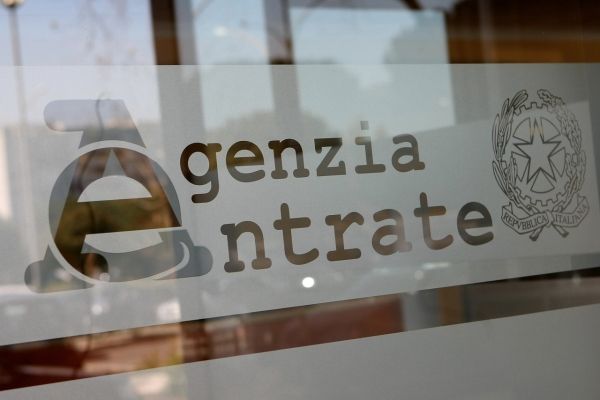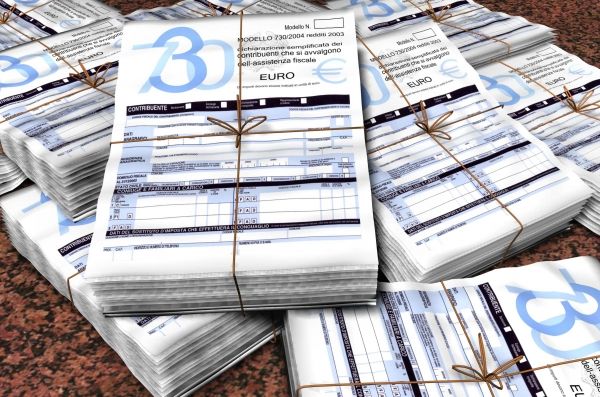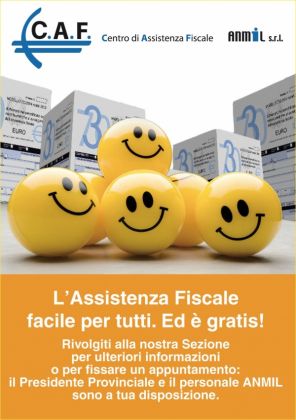Stiffer regulations on tax declarations for foreign residents in Italy have been in force for several years but now controls are getting tougher
“Desperate times call for desperate measures” – Hippocrates. Nothing much has changed since ancient Greek times and under the current global economic crisis many countries are monitoring taxation more closely to ease their public debts.
In Italy the laws governing the taxation of foreigners in Italy are not new; they have been in place for a number of years together with bilateral agreements against double taxation with a number of countries (see below), but recently their implementation is under the spotlight.
Taxation in Italy is levied at national, regional and municipal level. The Italian tax system is managed by the Agenzia delle Entrate (Inland Revenue Agency). The income tax year runs from 1 January to 31 December and taxes are payable normally by the end of June and the balance by the end of November.
Depending on your status in Italy, resident or non-resident, you will be subject to different taxation rules. Non-residents are only taxed on income and gains arising in Italy, whereas residents according to the bilateral agreements are taxed on worldwide income and gains.
Income tax on salaries is deducted at source by employers on the basis of the estimated annual income. The balance of tax due is calculated at the end of the year.
If you are a non-resident employee without other sources of income over and above your salary, it is not necessary to complete a tax return. The self-employed non-resident must complete a tax return and pay the tax due on their income. Tax is payable on the basis of the previous year's income. Foreign researchers who have fixed residence in a country that has signed an agreement with Italy against double taxation are generally allowed to choose whether to pay taxes in their country of residence or in Italy, usually for a maximum of two years. Researchers and academics can request assistance with tax matters from the European commission EURAXESS (website ec.europa.eu/euraxess/).
All residents, foreign or national, are required to submit a tax return to the Agenzia delle Entrate: employees in the private or public sector fill in form 730 and self-employed persons (liberi professionisti) the Modello Unico, normally submitted at the end of April but extensions can be obtained until June.
Foreigners living in Italy will be classified as resident if: for 183 days (6 months) of a calendar year they were registered with the registry office (Ufficio Anagrafe), or for 183 days of a calendar year they had their main place of business or residence in Italy, or for 183 days of a calendar year they had their “centre of vital interest” (i.e., family) in Italy Taxes to be paid in Italy by residents are as follows:
IRPEF (personal income tax). A progressive scale is applied to successive portions of taxable income under IRPEF. Personal income tax rates range from 23 per cent to 43 per cent (as from 1 January 2007). In addition, a regional surcharge ranging from 1.23 per cent to 2.03 per cent is levied under IRPEF depending on the level of income and region of residence, together with a municipal surcharge of up to 0.9 per cent depending on the municipality of residence. This tax is deducted at source by the employer and paid to the Agenzie delle Entrate.
Social security. The rate depends upon the classification of the employer for social security purposes and the position of the employee (e.g. manager). Generally an employee pays approximately 10 per cent of gross salary whilst the employer's contribution is between 28 per cent and 30 per cent of gross salary. These contributions are deducted by the employer and paid to the national social security institute INPS.
Accident insurance. This insurance is compulsory for all employees in activities which the law defines as risky. This contribution is paid by your employer to INAIL, the national institute for accidents in the workplace.
Pensions. The bilateral double taxation conventions ratified by Italy distinguish between private pensions and pensions of a public nature. Private pensions are defined as those relating to past employment, in the private sector. They are taxed exclusively in the state of residence of the recipient, i.e. Italy, so the source state, for example the UK or US, is obliged to exempt such income from taxation. Public pensions are those received in respect of past service rendered to the state, a political or administrative subdivision or a local authority. These are generally taxed exclusively in the state in whose interest the services were rendered (the source state).
Property taxes. If you own a property in another country and are resident in Italy, you are obliged to pay a tax in Italy called IVIE (value of real estate located abroad). In this case, in order to avoid double taxation in Italy, the taxpayer can deduct a tax credit equivalent to the amount of any property tax paid in the country in which the property is located, by submitting proof of payment together with your tax return. In the event that your property abroad is rented to a third party the income generated is payable in Italy and is represented on your tax return here. IMU – Imposta Municipale Unica (council tax) on primary properties in Italy was abolished in August 2013, and is no longer payable should you own the home you live in.
Interest on investments. Any interest earned from investments in Italy or abroad is taxed in Italy. If the interest is taxed at source in the country where the investment is situated, a tax credit will be granted in Italy if proof of payment is submitted with your tax return. Interest is usually taxed at the rate of 20 per cent in Italy. Inheritance and estates Inheritance and estates are taxed in the country in which the deceased was resident and agreements on the avoidance of double taxation protect you from having to pay taxes in Italy resultant from inheritance from abroad.
Tax deductions. In Italy tax deductions are granted for mortgage payments (mutuo), taxes on your rental contract, medical expenses including medicines, veterinary expenses, school transport, children’s extracurricular activities and sports, and university fees. Receipts from the preceding year bearing your codice fiscale number must be submitted together with your tax return (for example 2012 receipts are submitted in 2013). When purchasing medicines at a pharmacy, display your tessera sanitaria (Italian health card) and your fiscal code will be automatically printed on your receipt. Even if a foreign resident has a sole income from a salary which is taxed at source, it is advisable to submit a tax return with your expense receipts as you will be entitled to a rebate on the tax you have paid on your salary.
Our advice to foreign residents, employees and pensioners alike, is to seek assistance from a local CAF (Centro Assistenza Fiscale), which are recognised service providers by the Agenzie delle Entrate, and which help you fill in and submit your tax return for a fee usually ranging from €50 – €100 depending on the complexity of the return. Your local CAF office can be located on their website www.caf.acli.it under the banner contatti, or you can contact them at by phone on 199199730 or at info@caf.acli.it.
Readers are welcome to send suggestions for future topics in this series either to editorial@wantedinrome.com or directly to avv.annino@libero.it.
SIDE NOTES
IVA (VAT). As of 1 October, IVA or Value added tax in Italy on goods purchased or services rendered is levied at 22 per cent. The prices reflected on supermarket shelves and on goods in shops is normally the total price inclusive of IVA, unless otherwise stipulated on the item.
TARES – Tassa Rifiuti e Servizi. Contrary to popular belief even among Italians, TARES is not being put in place to replace the abolished IMU. IMU was a property tax, TARES is a service tax. It is a combination of the old TARSU (Tassa Sui Rifiuti Solidi Urbani or garbage removal fee) which all tenants and property owners paid before, and TIA (Tariffa di Igiene Ambientale or a removal and recycling fee) together with a services fee for municipal street lighting and road maintenance. This tax is calculated according to the surface area of your residence and the number of people living there. To get a feel for what TARES will cost you annually, experts in the field say that it will cost each household approximately 29 per cent more than the old TARSU/TIA. On average TARSU cost each household €300 a year, which means TARES would be around €380 yearly. This may seem an alarming hike, but if you compare it to the average council tax in the UK, which according to local community and government figures released 23 March 2011 was £1,196, it is not that hefty. TARES is still being implemented, but when fully in place by 2014 will be split into four instalments payable separately in January, April, July and December to ease the load. Together with this change, municipalities are now obliged to implement differential garbage collection with the view to recycling and environmental protection initiatives, whereas before they were only obliged to remove the garbage which was inevitably dumped elsewhere.
Bilateral agreements between Italy and the following countries: Albania, Algeria, Argentina, Armenia, Australia, Austria, Bangladesh, Belgium, Brazil, Bulgaria, Canada, China, Cyprus, South Korea, Republic of Côte d'Ivoire, Denmark, Ecuador, Egypt, United Arab Emirates (UAE), Estonia, Ethiopia, Russian Federation, Republic of the Philippines, Finland, France, Georgia, Ghana, Germany, Greece, India, Indonesia, Ireland, Iceland, Israel, Former Yugoslavia, Kazakhstan, Kuwait, Latvia, Lithuania, Luxembourg, Former Yugoslavian Republic of Macedonia (FYROM), Malaysia, Malta, Morocco, Mauritius, Mexico, Mozambique, Norway, New Zealand, Oman, Netherlands, Pakistan, Poland, Portugal, Czech Republic, Slovak Republic, Romania, Senegal, Syria, Republic of Singapore, Spain, Sri Lanka, South Africa, Sweden, Switzerland, Tanzania, Thailand, Trinidad and Tobago, Tunisia, Turkey, UK, US, Ukraine, Uganda, Hungary, Soviet Union, Uzbekistan, Venezuela, Vietnam, Zambia.
General Info
View on Map
Taxation Time in Italy
Readers are welcome to send suggestions for future topics in this series either to editorial@wantedinrome.com or directly to avv.annino@libero.it.























